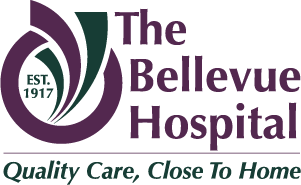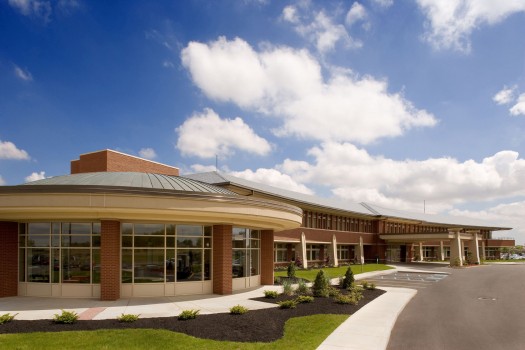The Bellevue Hospital (TBH) continues to monitor the trends and spread of the coronavirus (COVID-19). Currently there are no COVID-19 confirmed cases locally in Bellevue’s four-county area.
“We continue to be conscientious in our efforts to protect our patients and community from the spread of contagious illnesses,” said Michael K. Winthrop, president and CEO of The Bellevue Hospital. “With the report of confirmed cases of COVID-19 in Ohio and a heightened flu season, we see enough reason to be cautious and set some restrictions in place.”
TBH asks community members to stay home if they are sick and that children under the age of 18 not visit patient care areas in the hospital. In addition, the hospital encourages anyone admitted to the hospital designate one family member as the key person to visit and keep other family members informed.
The hospital on Tuesday, March 10 also reviewed community programs and looked at those events where the key populations susceptible to COVID-19 would attend. Hospital officials have decided to suspend monthly Mature Audience Luncheons, Morning and Evening Health Breaks, Diabetes Support Group and Reiki and Natural Healing meetings until further notice. In addition, it was decided to cancel the Easter Bunny visit on Friday, April 10.
Symptoms of COVID-19, which generally appear two to 14 days after exposure, include fever, cough, and difficulty breathing. Most people who become sick do not require hospitalization, but older adults, people with chronic health conditions, and people with compromised immune systems are more likely to require more advanced care.
Ways to Minimize Spread of Respiratory Diseases
While there is no vaccine to prevent COVID-19, the best thing we can do as a community to prevent illness is to avoid being exposed to this virus. There also are everyday preventive actions to minimize the spread of respiratory diseases, including:
- Wash your hands often with soap and water for at least 20 seconds. Use an alcohol-based hand sanitizer that contains at least 60% alcohol if soap and water are not available.
- Avoid close contact with people who are sick.
- Avoid touching your eyes, nose, and mouth with unwashed hands.
- Avoid crowds as much as possible. Put distance between yourself and other people if COVID-19 is spreading in your community. This is especially important for people who are at high risk of getting very sick including older adults and those with serious chronic conditions.
If you are sick, to keep from spreading respiratory illness to others, you should:
- Stay home when you are sick.
- Cover your cough or sneeze with a tissue, then throw the tissue in the trash.
- Clean and disinfect frequently touched objects and surfaces.
What to do if you get sick:
Call your healthcare provider and let them know your symptoms. Tell them that you have or may have COVID-19. This will help them take care of you and keep other people from getting infected or exposed.
If you are not sick enough to be hospitalized, you can recover at home. If you develop emergency warning signs for COVID-19 get medical attention immediately. According to the Centers for Disease Control and Prevention (CDC), In adults, emergency warning signs include:
- Difficulty breathing or shortness of breath
- Persistent pain or pressure in the chest
- New confusion or decrease in mental status
- Bluish lips or face
“As the COVID-19 outbreak evolves, The Bellevue Hospital (TBH) knows our patients and communities are increasingly concerned whether and how the virus is spreading in our communities,” Winthrop said. “That’s why The Bellevue Hospital is working closely with our federal, state and local partners to respond to this challenge, update contingency plans and stay informed with the most up-to-date information. We also will continue to work very closely with the Huron County and Sandusky County health departments to coordinate the processes for reporting and specimen management if needed.”
For additional information or questions, call the hospital at 419.483.4040, Ext. 4200. Anyone with questions about COVID-19 can call the Ohio Department of Health hotline at 1-833-4-ASK-ODH or visit coronavirus.ohio.gov. Information also can be found at cdc.gov.

